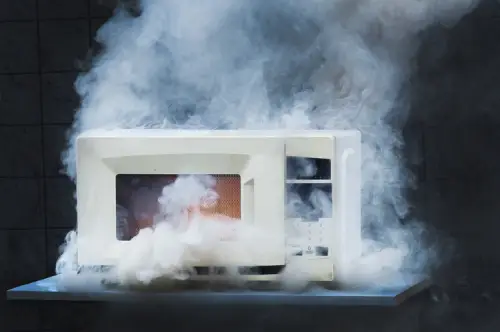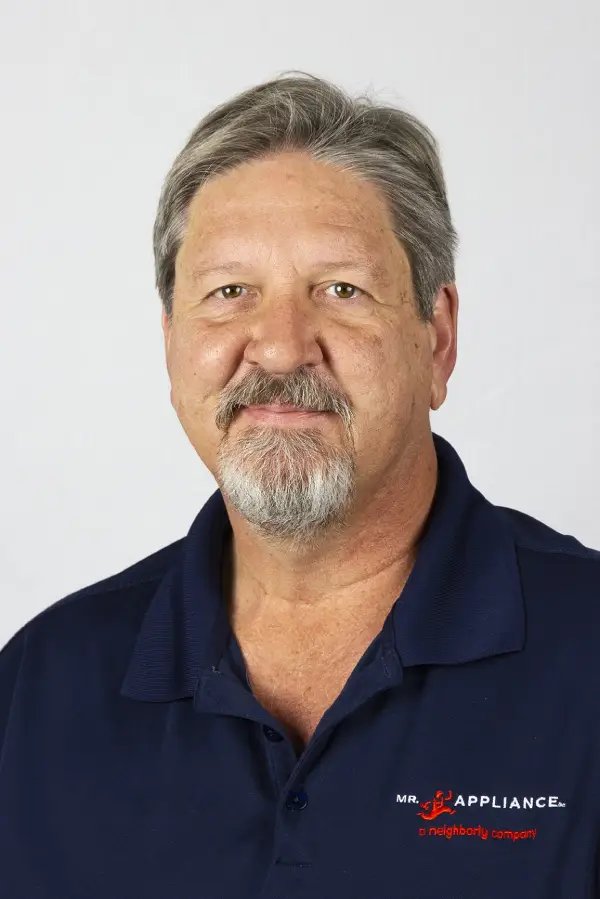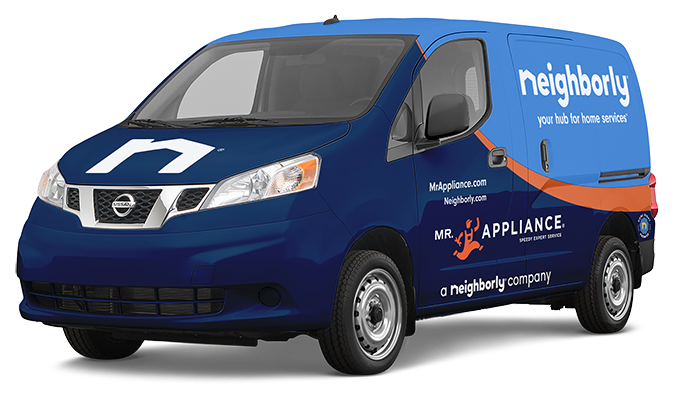
The experts at Mr. Appliance® provide a guide to common issues that might lead to necessary microwave oven repair.When your microwave stops working, many common issues can be repaired, but it's important to prioritize safety. Attempting to repair internal components yourself is extremely dangerous, as capacitors can hold a lethal electrical charge even when the unit is unplugged. Mr. Appliance expert Stuart Pyburn explains common microwave problems, such as:
When deciding whether to repair or replace your microwave, experts suggest considering the unit's type, age, and repair cost. |
The microwave oven is the unsung hero of the modern kitchen. If it suddenly stops working, your daily routine can come to a screeching halt.
Before you rush to the store to buy a replacement, it’s important to understand what might be wrong. Many common issues are easily fixable by a Mr. Appliance® microwave oven repair expert.
- About the Expert Stuart Pyburn
- FAQs About Microwave Oven Repair
Safety First: What You Need to Know When Considering Microwave Oven Repair
A malfunctioning microwave can be a genuine safety hazard. It’s essential to handle any issues with caution.
According to Mr. Appliance expert and 36-year microwave oven repair professional Stuart Pyburn, “Both a faulty microwave and a faulty operator can cause food to catch on fire. Make sure you stay in the room when using a microwave.”
Essential microwave oven repair safety checklist
☐ NEVER attempt to repair internal, high-voltage components yourself. This is the most important rule of microwave repair, as capacitors can hold a deadly charge long after being unplugged.
☐ NEVER operate a microwave that has a damaged door, seal, or latch. A proper seal is essential to contain radiation.
☐ NEVER put metal, foil (unless specified by the manufacturer for certain functions), or non-microwavable plastics in the microwave. This can cause arcing, sparks, and fire.
☐ ALWAYS stop using the microwave immediately if you see sparks or smoke. Unplug the unit if it is safe to do so and call a professional.
☐ ALWAYS clean up food splatters and spills promptly. Caked-on food can absorb energy, leading to hot spots and potential fire hazards.
☐ ALWAYS use microwave-safe containers and vent them by leaving a lid slightly ajar to allow steam to escape.
Decoding the Distress Signals: Common Microwave Problems
When your microwave starts acting up, it’s usually trying to tell you something. Here are some of the most frequent homeowner complaints and what they might mean.
The microwave runs, but it's not heating food
Perhaps the most frustrating microwave issue occurs when the light works, the turntable spins, the fan hums, but food comes out just as cold as it went in.
According to Mr. Appliance microwave oven repair expert Stuart Pyburn, the answer isn’t always straightforward. “There are many parts of a microwave oven that control and adjust the heating process,” Pyburn explains. “Any one of them could be broken, leading to your microwave not heating.”
If your microwave isn’t heating food, the issue is most likely one of the high-voltage components responsible for generating the microwave radiation. These can include:
- A faulty magnetron: This is the core component that creates the microwave frequency to heat food. If it burns out, the microwave will no longer heat.
- A malfunctioning high-voltage transformer: This component converts AC power to DC, effectively doubling the voltage to power the magnetron. If the transformer fails, the magnetron won’t get the power it needs.
- A broken capacitor: The capacitor stores and releases the high voltage required to operate the magnetron. This part can fail, preventing the heating process.
- A damaged door switch: For safety, microwaves will not operate if the door isn't properly closed. A faulty door switch can trick the microwave into thinking the door is open, preventing the magnetron from activating.
Important note: These components carry an extremely high and potentially lethal electrical charge, even when the microwave is unplugged. Always consult a qualified service professional before microwave oven repair or replacement.
Other common issues that require microwave oven repair
While a failure to heat is a major headache, other problems can be just as disruptive. Common issues often signal that a specific part is in need of professional diagnosis and repair.
- The turntable isn't turning. A stalled turntable could be caused by a stripped or broken drive bushing (the coupler that connects the motor to the tray) or a worn-out motor.
- The microwave is making loud, unusual noises. A buzzing or humming sound could point to a problem with the magnetron. A grinding noise might indicate a faulty stirrer motor or turntable motor.
- The touchpad is unresponsive. An inoperable touchpad may be due to a faulty control board, but it can also be a simple case of a greasy or damaged touchpad membrane.
- The exhaust fan or light isn't working. In over-the-range models, these issues can be caused by a burned-out bulb, a bad fan motor, or faulty wiring.
The Big Question: Microwave Oven Repair or Replacement?
When faced with a broken microwave, many people wonder if it’s worth the cost of a repair. The answer depends on several factors, including the type of microwave you own and the extent of the problem.
Microwave oven repair expert Stuart Pyburn offers a cost-benefit breakdown of repairing or replacing your appliance:
|
Factors to consider |
When to consider REPAIR |
When to consider REPLACEMENT |
|
Type of microwave |
Built-in or over-the-range microwaves. These models are expensive and difficult to install, making repair the more cost-effective and convenient choice. |
Small, inexpensive countertop models. The cost of repair may be close to the cost of a new, similar unit. |
|
Age of the unit |
The microwave is less than 5 to 7 years old and has been reliable. |
The microwave is over 10 years old, has had multiple issues, or is technologically outdated. |
|
Cost of repair |
The estimated repair cost is significantly less than half the price of a comparable new model. |
The repair cost is more than 75% of the cost of a new unit. |
|
Features & matching |
You love the features of your current microwave, or it’s part of a matching appliance suite that would be expensive to break up. |
You're looking to upgrade to a newer model with better features (e.g., convection cooking or sensor technology). |
Considering the “hassle factor”
The “hassle factor” is a significant consideration with microwave oven repair. Researching new models, arranging delivery, performing the installation (especially for built-in units), and disposing of the old appliance is a time-consuming process that many homeowners would rather avoid.
As a 36-year appliance industry professional, Stuart Pyburn points out that the decision often comes down to personal preference and convenience. “That is really up to the owner,” he says. “If parts are available and you like your over-the-range or built-in microwave, do you really want to go through the hassle of finding a new one, having it delivered and installed, and having the old one hauled away? Why not just call Mr. Appliance and have it fixed?”
Contact Mr. Appliance for Microwave Oven Repair Near You
When your microwave gives up, turn to a fast, reliable, and safe solution. Attempting complex DIY repairs is dangerous, and replacing a high-quality unit can be needlessly expensive. The professionals at Mr. Appliance offer a better way.
Our experts can diagnose the problem, access the right parts, and perform the repair efficiently. If you’re ready to get your kitchen back to full speed with professional microwave oven repair, contact your local Mr. Appliance team to request an appointment today.
All Mr. Appliance franchises are locally owned and operated and may offer fewer or more services than those listed here. To learn more about the microwave oven repair services offered in your area, contact the Mr. Appliance nearest you for details or a customized on-site assessment.
FAQs About Microwave Oven Repair
Integrity, dependability, and exceptional customer service are the qualities that make Mr. Appliance the go-to resource for appliance maintenance and repairs. All independently owned and operated Mr. Appliance locations are committed to providing the top-notch service you expect from an industry leader, including using our expertise and years of experience to answer your questions. Here are answers to some of the most frequently asked questions about microwave oven repair.

